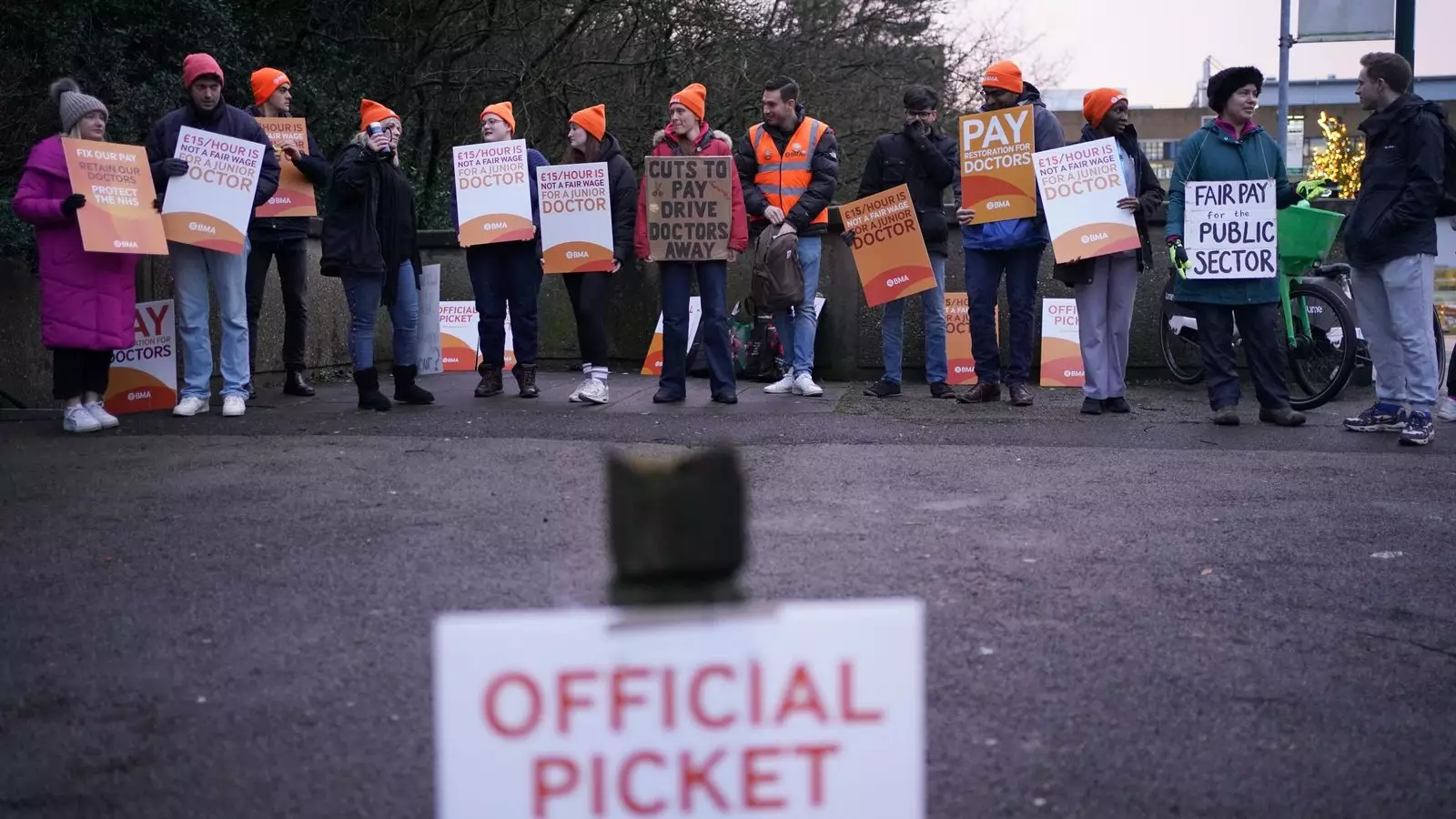The ongoing pay row between junior doctors in England and the government has once again resulted in a major disruption to patients. This time, junior doctors have embarked on a five-day strike, marking the 10th stoppage since last March. The strike is a response to what junior doctors view as a lack of a credible pay offer by the government to reverse the pay cuts that have been inflicted upon them for more than a decade.
The strike has led to the cancellation or postponement of tens of thousands of hospital appointments, creating further delays in patient care. With more than 1.3 million appointments and operations already affected by previous industrial actions, the latest strike only compounds the disruption that patients face. Health Secretary Victoria Atkins expressed concern over the impact of the strike on patients, urging the BMA junior doctors committee to call off the strikes and return to the negotiating table for a fair resolution.
Dr. Robert Laurenson and Dr. Vivek Trivedi, co-chairs of the BMA junior doctors committee, criticized the government for choosing strike action over resolving the pay dispute. Despite junior doctors receiving a pay rise of nearly 9% this financial year, the BMA has been seeking a 35% “pay restoration.” Junior doctors, who make up around half of all doctors in the NHS, are willing to negotiate but have not found the government’s offers satisfactory.
Labour’s shadow health secretary Wes Streeting expressed concern over the devastating impact of the strikes on patients, while noting that Prime Minister Rishi Sunak’s refusal to negotiate is hindering progress. NHS national medical director Professor Sir Stephen Powis described the situation as “extremely concerning,” highlighting the disruption becoming a “new normal.” Saffron Cordery, deputy chief executive of NHS Providers, emphasized the negative impact of continuous strikes on staff morale and patient care.
As the strike continues and the strike mandate is expected to be renewed, the need for a fair resolution that addresses the concerns of junior doctors while minimizing the impact on patients becomes crucial. Both sides must be willing to engage in meaningful negotiations to find a sustainable solution that ensures the well-being of healthcare workers and patients alike.
The ongoing struggle of junior doctors in England highlights the challenges within the healthcare system and the importance of resolving disputes through dialogue and compromise. The well-being of patients should remain at the forefront of discussions, as the continuous disruptions caused by strikes have a significant impact on the delivery of healthcare services. It is imperative for all parties involved to work towards a fair and sustainable solution that prioritizes the needs of both healthcare workers and patients.

Leave a Reply